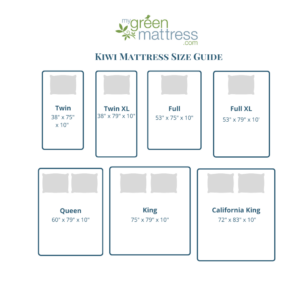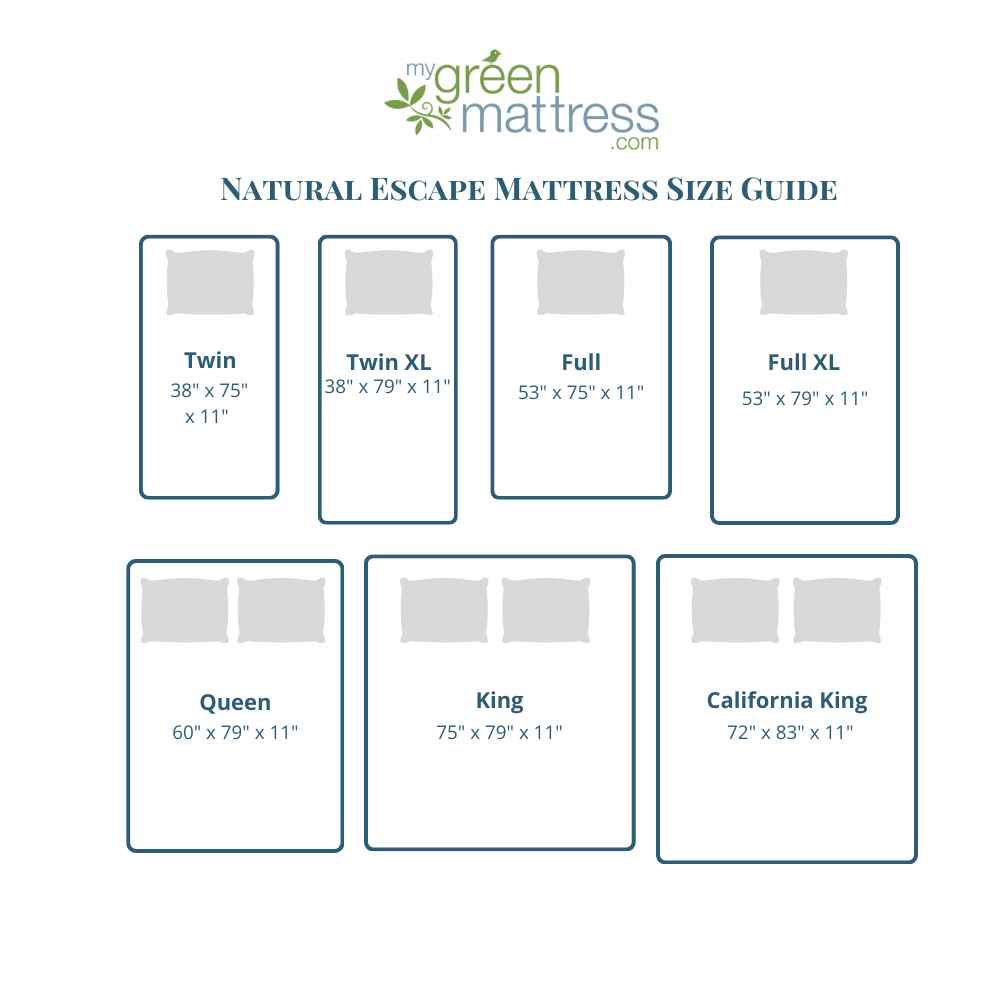Getting enough sleep each night isn’t the only important thing–it’s also learning what the best temperature to sleep in is. When you’re trying to catch some Zs and it just isn’t happening, learning how to optimize your sleeping environment is a good action to take.
As it turns out, basic human physiology hasn’t changed much. The human biological clock is designed to promote sleep at night, which is also when temperatures are cooler. However, that doesn’t mean you want to sleep in a frigid room or environment.
So, what is the best temperature to sleep in? How can you use this knowledge to sleep better year round? Keep reading to find out, including the best sleeping temperature for summer, winter, and when you’re sick.

Best Temperature to Sleep In
The best temperature to sleep in is about 60 to 67 degrees Fahrenheit, or about 15.5 to 19.4 degrees Celsius. This is a cool room temperature, which improves airflow and ease of breathing before bed.
Some people find that sleeping on the warmer side of this scale is the most comfortable, i.e. 64 to 67°F. However, others prefer as cool a room as reasonably possible, which is right around 60 to 61°F. Experiment with a range of temperatures and see which temperature you fall asleep most easily in.
During sleep, your body’s core temperature drops slightly. This is for several reasons:
- It’s easier to conserve as much energy as possible
- Your body directs energy where it’s needed most, namely your brain
- You end up staying asleep more easily
If you normally sleep in a warm room because you’re afraid the temperature will drop too much, know that you can safely lower it. Contrary to popular belief, sleeping in a warm room makes it harder to fall asleep, not easier.
What if it’s winter, though? Does that affect anything? Keep reading to discover the best temperature to sleep in during winter.

Best Temperature to Sleep In Winter
The best temperature to sleep in during winter is 62 to 68°F (16.6 to 20°C), which is just slightly higher than the average sleeping temperature. During the particularly cold weeks that span from November through February (sometimes into March) in North America, it’s fine to have your room a tad warmer.
Temperatures can drop unexpectedly or severely during the night, especially if you live in a northern area. Northern region winters are known to be unforgiving, especially during January.
Best Temperature to Sleep In Summer
The best temperature to sleep in summer is 65°F or 18.3°C. This is a comfortably cool temperature that keeps you ready for slumber no matter how hot it is outside.
In order to get your room this cool during summer months, you usually need air conditioning. If you don’t have central air conditioning in your house, apartment, or living space, you can get a portable AC unit.

Best Room Temperature to Sleep In
The best room temperature to sleep in is about 63°F/17.2°C to 67°F/19.4°C. Unless the weather is unusually cold or hot, most rooms tend to stay around this temperature to begin with. This is also about the temperature a room will reach when there are at least two people in the room.
Best Temperature to Sleep In When Sick
Think it’s best to sleep in a warmer room when you’re ill? Think again. Trying to fall asleep in a warm space when you’re likely already fighting a fever means you’re only going to wake up feeling more stuffed.
The best temperature to sleep in when sick is the same as normal–between 60 to 67°F or 15.5 to 19.4°C. This keeps your body appropriately cool, allows you to breathe easier, and prevents you from waking up in nasty sweat in the morning.
Frequently Asked Questions About Best Sleeping Temperature
Optimizing your personal sleep has so many benefits, but so many factors to keep track of. There’s your mattress, pillow, sheets, normal bedtime, and room temperature–to name the biggest. It can feel overwhelming.
If you’re anything like us, you have more questions about what the best temperature to sleep in is. We looked up the most commonly asked questions so you don’t need to. Check out our answers now:
Is Sleeping In a Cold Room Healthy?
Yes, sleeping in a colder room is healthier than sleeping in a warm room. A slightly cool temperature prevents the likelihood of heart-related issues like diabetes and high blood pressure.
Is 75 Too Hot to Sleep In?
In most cases, yes, 75°F is too hot to sleep in. Your body is designed to sleep in a cooler temperature range around 60°F to 67°F. Much warmer than this and your body has too much difficulty dropping to a low enough core temperature; much cooler than this and you’ll be shivering in your bed.
Is It Better to Sleep In a Warmer or Colder Room?
It’s better to sleep in a slightly cooler room. This allows your body to adjust to the right temperature before sleeping, and it makes for easier breathing while asleep too.
What Temperature Is Too Cold to Sleep?
If your bedroom is any colder than 58°F, it’s too cold. Around this temperature is when your body can’t maintain a natural sleeping temperature for itself. You can try to pile on the blankets, but this restricts breathing and risks you waking up feeling hot and stuffy. You want a natural, slightly cool room temperature–both for the room and your own breathing.
Need a hybrid organic mattress to go with your perfect sleeping temperature? We make the best certified organic mattresses that won’t break the bank. Shop our organic mattresses now and check out our accessories, too.
Have questions before you buy? Our knowledgeable customer service team is just one message away.











